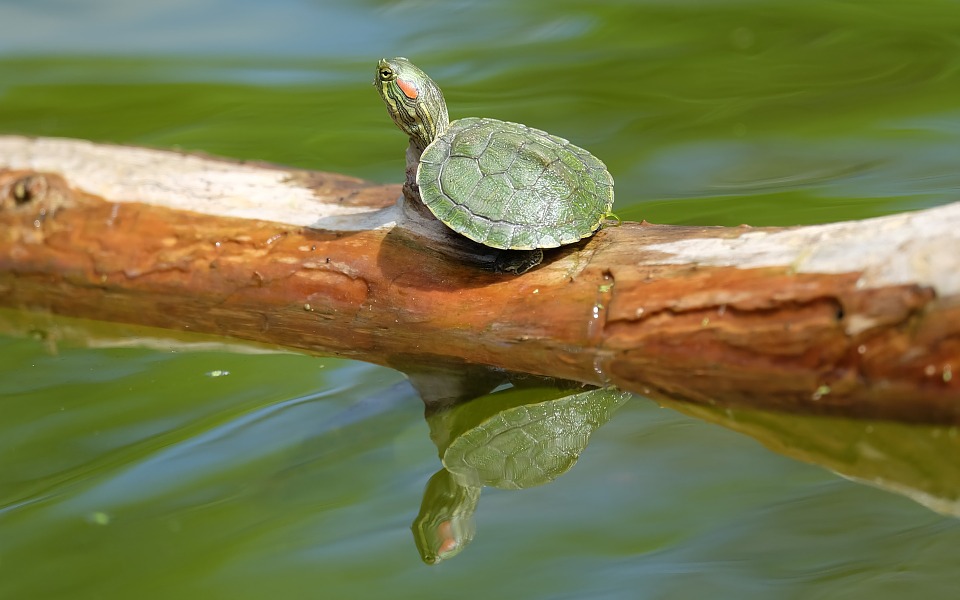CARE - INTERACTION
Interaction
You and your turtle
Turtles are easily stressed, so try to avoid stressful situations. Although it can seem fun to take your turtle out of its tank, this experience isn’t so fun for your turtle. So, don’t take your turtle out of its tank too often; limit this to when you are caring for your turtle (when cleaning the paludarium or when checking for diseases, for example).
You may even want to let your turtle loose on the floor. If you do, you’ll notice that these animals are not nearly as slow as is commonly claimed. However, it’s not a good idea to let your turtle explore. It could catch a cold or even pneumonia because turtles are very sensitive to cold air.
The most important thing you can do is to listen to your turtle. Of course, they can’t speak but they communicate through their behaviour. You can develop a close relationship with your turtle by listening to it; your turtle will show you if there’s anything wrong.
Your turtle and another turtle
An aquatic turtle is perfectly happy living on its own, so it doesn’t necessarily need to have a friend. However, there’s nothing to stop you from keeping more than one turtle. Of course, these turtles will then interact with each other. Just like humans and other animals, they may develop an excellent relationship, but there are risks. How can you tell if your turtles are mating or fighting? Again, you can observe their behaviour.
Two or more turtles can live together, but bear the following tips in mind to avoid any problems:
- Never let large and small turtles live together in a paludarium – they may start to bite each other’s limbs off.
- Keep different turtle species separate. Different turtle species require different care and there is little chance that these species will become friends.
- Isolate diseased turtles from healthy turtles – this is just common sense.
- Similarly, only introduce a new turtle to an older turtle when you’re sure that the new turtle does not have any diseases.
If, despite these precautions, you still have problems with overly aggressive turtles, you can put your turtles on a plant-based diet; too much meat can be a cause of aggressive behaviour.


